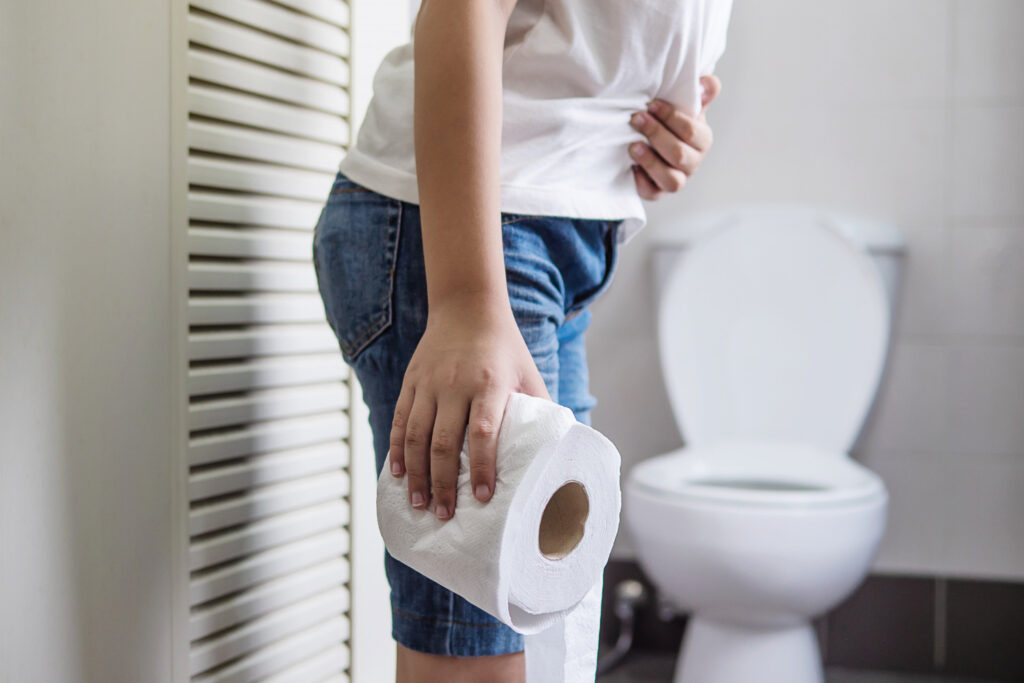
In this article
Constipation can make you feel sluggish, weighed down, and cranky. While most people experience it occasionally, it can become chronic for some, especially as they age.
Signs of Constipation
Wondering if you’re constipated? The key indicators include having fewer than three bowel movements a week and passing hard, dry stools that are difficult to expel.
Dietary Changes to Combat Constipation
If you’re dealing with constipation, changing your diet is a great first step. What you eat significantly impacts your digestive system, particularly your fiber intake. Fiber, a type of carbohydrate, naturally aids in regular bowel movements. Unfortunately, most adults consume only about half the recommended daily amount.
The Dietary Guidelines for Americans suggest that women should consume 22-25 grams of fiber daily, while men should aim for 28-31 grams. You don’t need to meticulously count fiber grams; instead, focus on incorporating high-fiber foods into your meals and snacks.
Top Fiber-Rich Foods to Include in Your Diet
Pears: One of the highest-fiber fruits, a medium pear contains 6 grams of fiber. Keep the peel on to maximize fiber intake.
Oats: All varieties of oats (old-fashioned, instant, or steel-cut) are whole grains and rich in fiber. One cup of cooked oatmeal provides 4 grams of fiber. Enhance your oatmeal with fresh or frozen fruit for an added fiber boost.
Potatoes: Excluding French fries, potatoes are nutritious and contain about 3 grams of fiber per medium potato, especially if you eat the skin. They are also a good source of vitamin C.
Flaxseed and Chia Seeds: These seeds are easy to add to oatmeal, smoothies, and baked goods, providing an extra fiber boost.
Beans: Incorporate beans into at least one meal per week to benefit from their high fiber, protein, and iron content. Half a cup of cooked kidney beans contains approximately 6 grams of fiber.
Popcorn: As a crunchy snack, popcorn is an excellent choice, providing 1 gram of fiber per cup. It’s also a natural source of whole grains.
Lentils: A half-cup serving of cooked green lentils contains 9 grams of fiber and the protein equivalent of 2 ounces of beef.
High-Fiber Cereal: Look for cereals with at least 5 grams of fiber per serving. Plain shredded wheat and bran cereals are good options. Adding fruits like blueberries or bananas can increase the fiber content.
Apples: A medium apple offers 4 grams of fiber, particularly when the skin is left on. Apples also provide plenty of water to aid hydration.
Edamame: These soybeans contain 4 grams of fiber per half-cup and are a satisfying, nutty snack.
Tips for Managing Constipation
Stay Hydrated: Consuming high-fiber foods is ineffective without adequate water intake. Fluids help fiber do its job by aiding stool passage.
Introduce Fiber Gradually: To avoid gas and bloating, slowly integrate fiber-rich foods into your diet.
Stay Active: Regular physical activity promotes efficient digestion. Even a daily walk can help keep your digestive system functioning smoothly.
When Diet Isn’t Enough
If dietary changes don’t alleviate your constipation, consult your doctor. You may need additional treatments, such as medication. It’s crucial to seek medical advice if you experience blood in your stool or abdominal pain.
By making these dietary adjustments and incorporating fiber-rich foods into your meals, you can help prevent and alleviate constipation, improving your overall digestive health
A Quick Review
Constipation can cause discomfort and affect your daily life. Key symptoms include fewer than three bowel movements a week and hard, dry stools. Increasing fiber intake through foods like pears, oats, beans, and lentils can help improve bowel regularity. Adequate water intake and regular physical activity are also essential for preventing constipation
FAQS
What are the main causes of constipation?
Constipation is often caused by a low-fiber diet, inadequate water intake, lack of physical activity, and certain medications.
How much fiber should I consume daily to prevent constipation?
Women should aim for 22-25 grams of fiber per day, while men should target 28-31 grams, according to the Dietary Guidelines for Americans.
Can increasing fiber intake cause any side effects?
Introducing fiber too quickly can cause gas and bloating. It’s important to increase fiber intake gradually and drink plenty of water.
Are there any foods I should avoid if I’m constipated?
Avoid processed foods, dairy products, and red meat, as they can exacerbate constipation.











